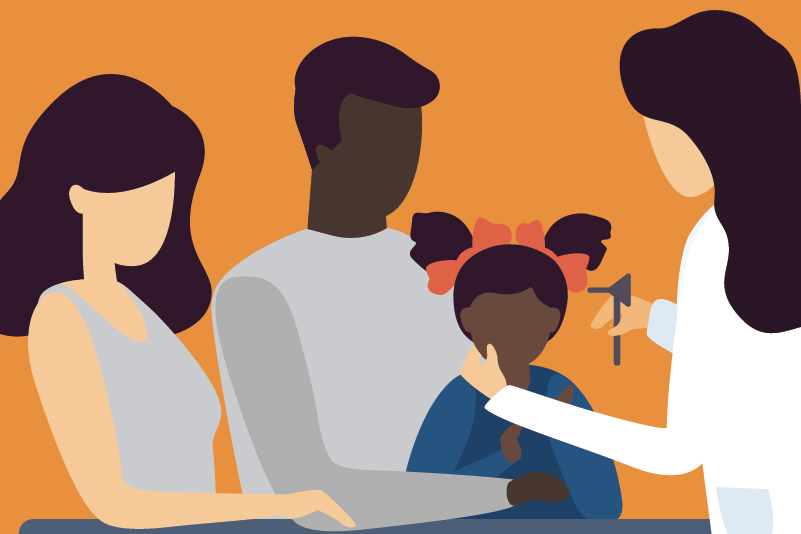#42 Children with Acute Otitis Media: Benefits and Risks of Antibiotics

Reading Tools for Practice Article can earn you MainPro+ Credits
Join NowAlready a CFPCLearn Member? Log in
- Amoxicillin/clavulanate (40/5.7 mg/kg/day) versus placebo, divided BID x7 days
- Treatment failure day eight: 19% (antibiotic) versus 45% (placebo), Number Needed to Treat (NNT)=4.
- Reduced absenteeism for child (day-care) and parent (work), more fever resolution, less contra-lateral AOM, fewer rescue treatments, etc.
- Antibiotics increased adverse events: Eczema Number Needed to Harm (NNH)=19, any diarrhea NNH=5 and for “a lot” of diarrhea NNH=12.
- Amoxicillin/clavulanate (90/6.4 mg/kg/day) versus placebo, divided BID x10 days.
- Clinical failure day 4-5: 4% versus 23%, NNT=6.
- Day 10-12: 16% versus 51%, NNT=3.
- Antibiotics increased adverse events: Diarrhea NNH=10, diaper rash NNH=7.
- Amoxicillin/clavulanate (40 mg/kg/day) versus placebo, divided BID x7 days.
- Resolution of middle ear effusion: 18.9 versus 32.6 days.
- Ear ache five days after initiation: 0% versus 17%, NNT=6.
- Three systematic reviews:4-6 7-15 RCTs (2,079-4,500 patients), antibiotic versus placebo, similar results.
- Persistent pain:6 At 24 hours no difference; At 2-3 days NNT=24; At 4-7 days NNT=17.
- Treatment success at 14 days:4 NNT=9.
- Less perforation and contralateral infection.6
- Vomiting, diarrhea, or rash:6 NNH=14.
- Natural history: 70% of untreated children have resolution at 7-14 days.1,2,4
- Poor Prognostic Indicators: Bilateral Otitis Media,2,7 age <24 months,7 exposure to more children (day-care),2 and more severe symptom scores.2
- Types of antibiotics: No reliable difference in the efficacy of antibiotics studied.4
- Amoxicillin is the most commonly studied and recommended.4,8
- Delayed versus immediate prescriptions:
- Four studies, two found no difference and two found immediate prescriptions superior (NNT=6-7).4
- Delayed prescriptions may increase patient dissatisfaction.9






